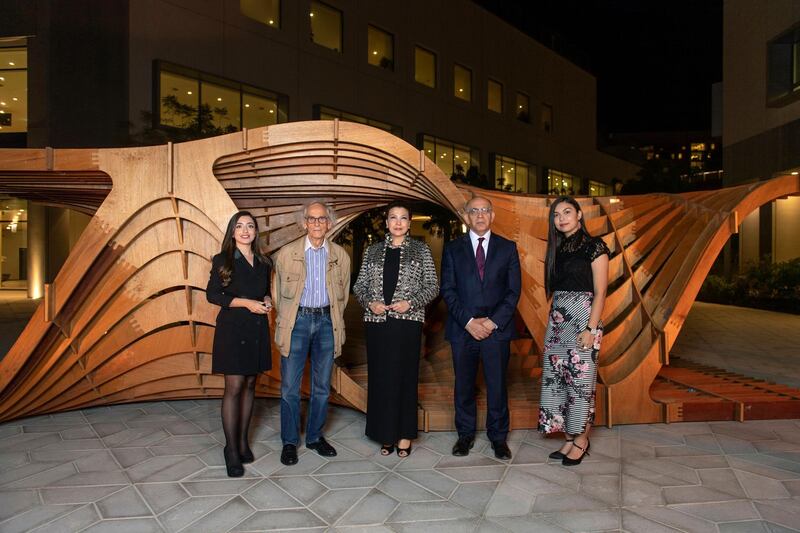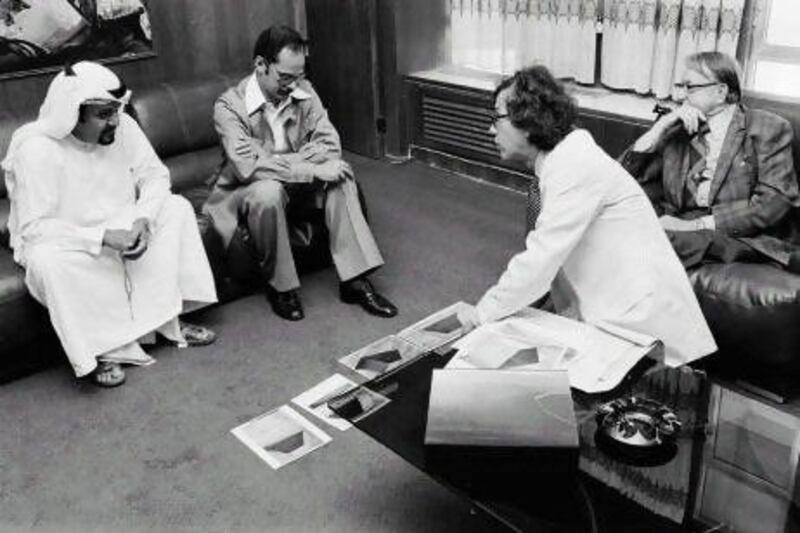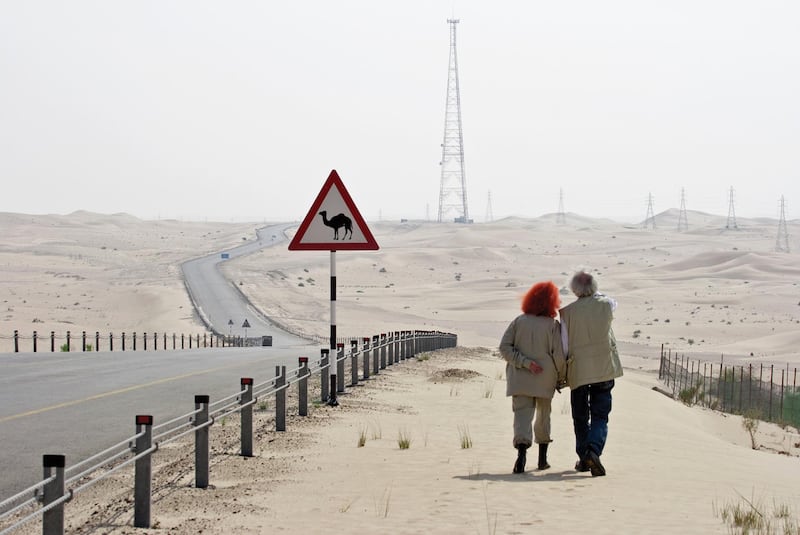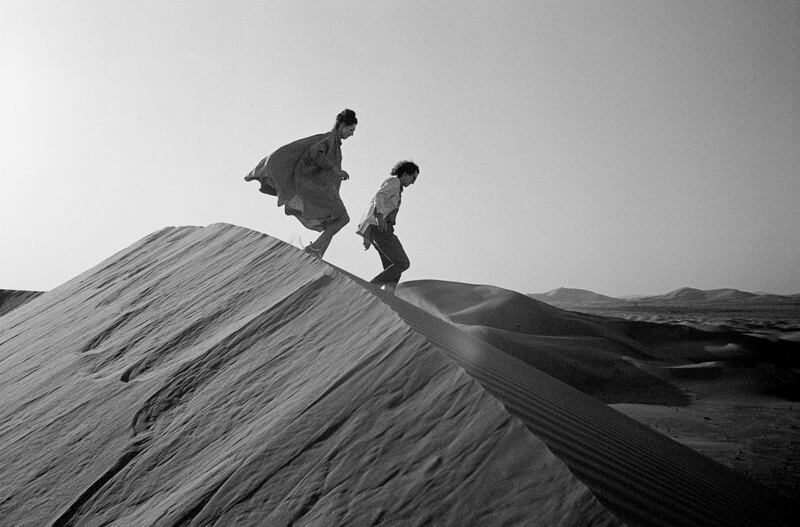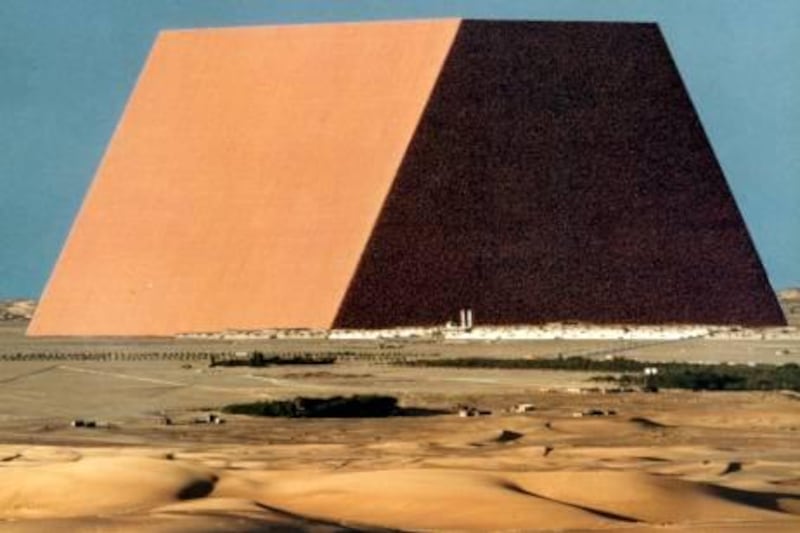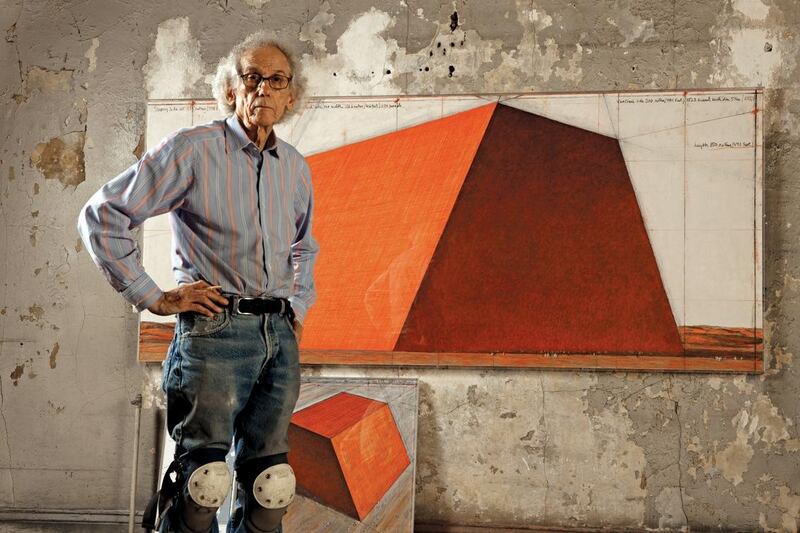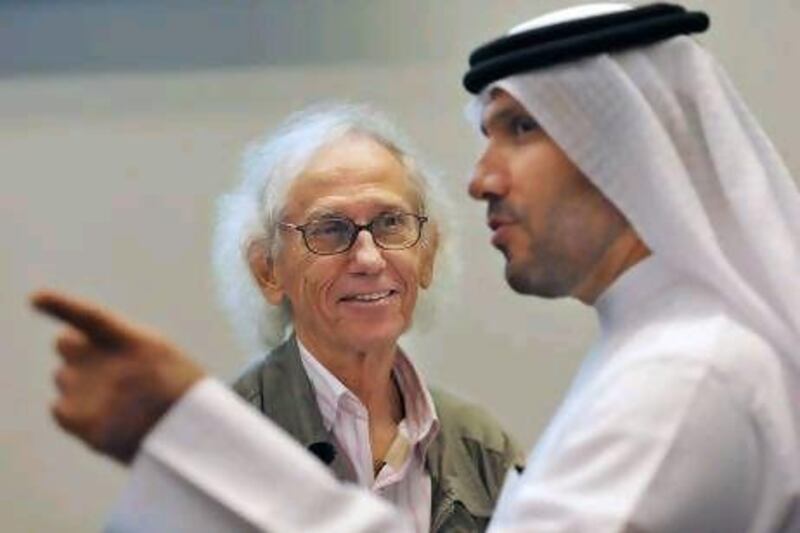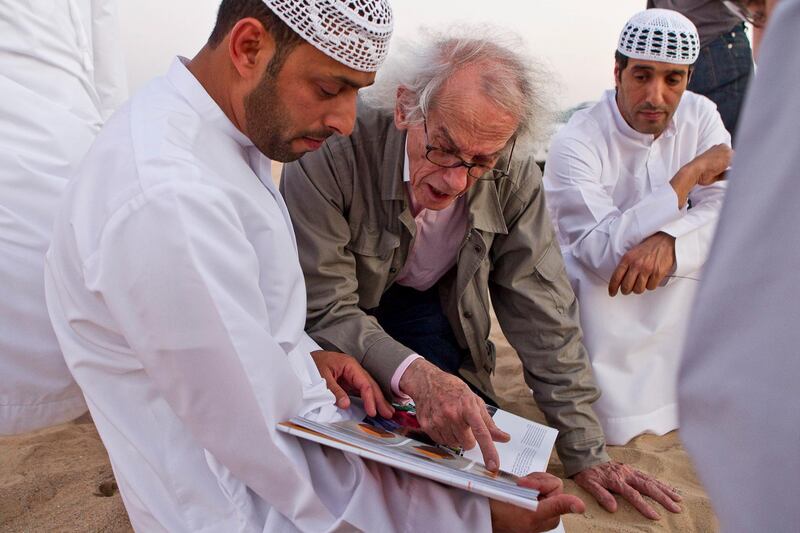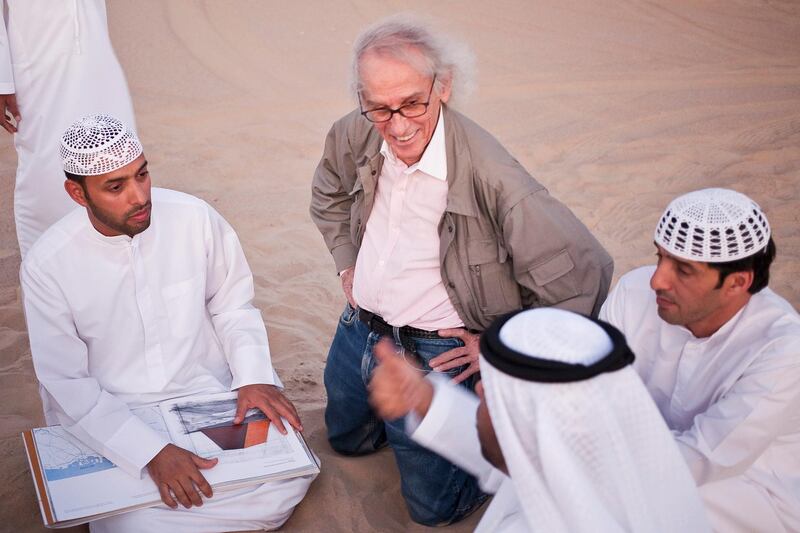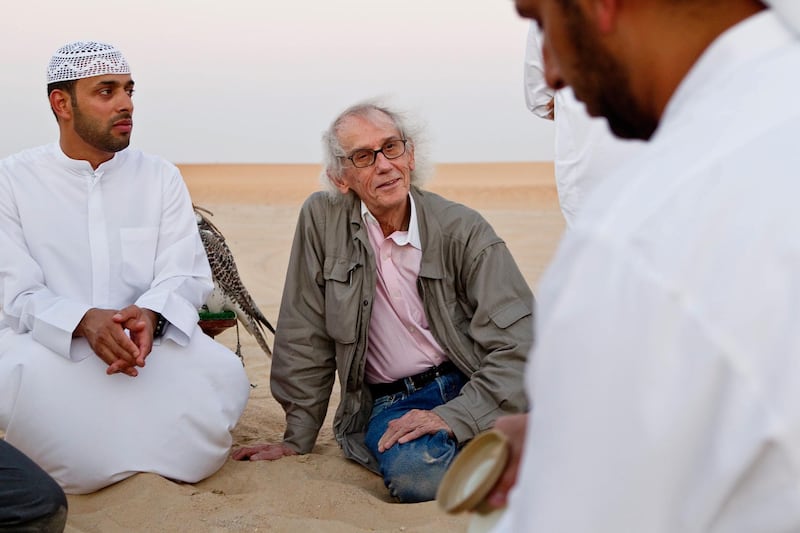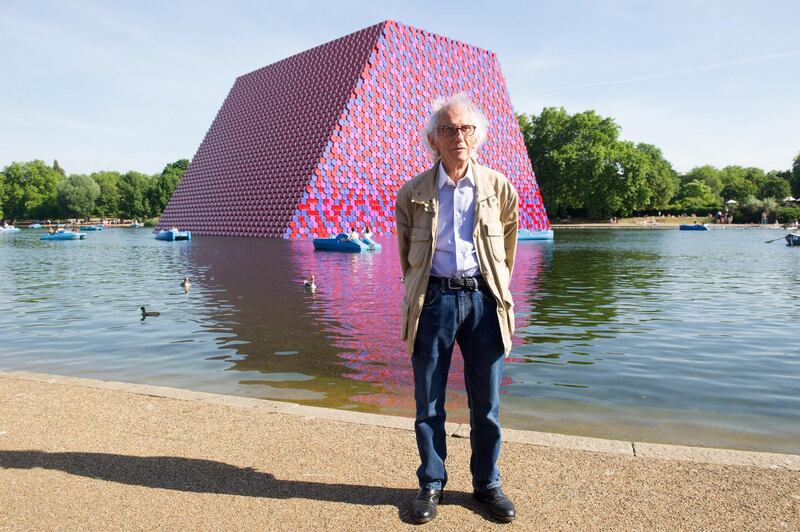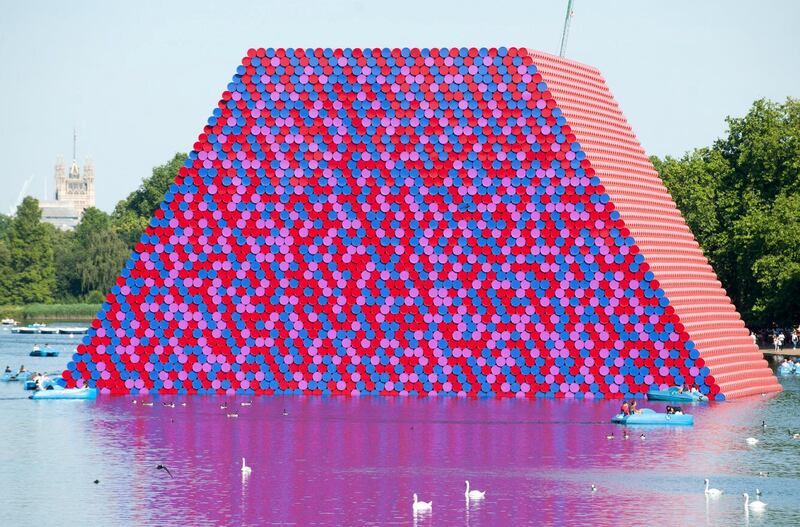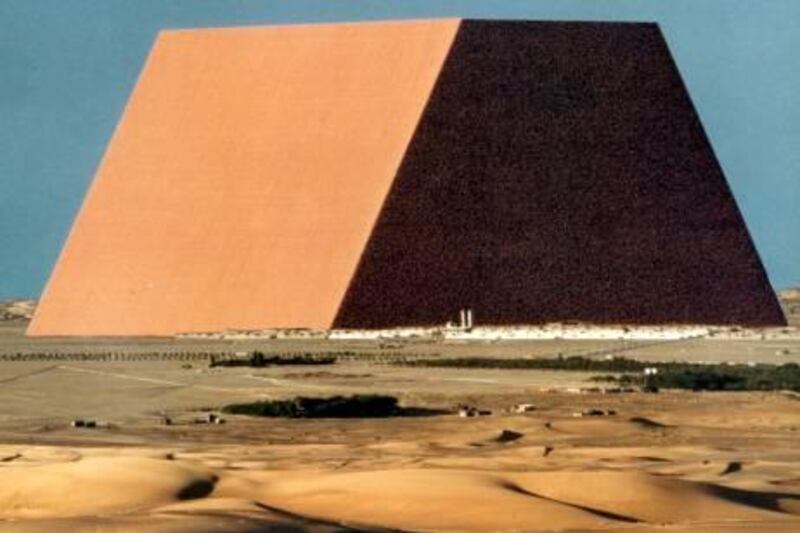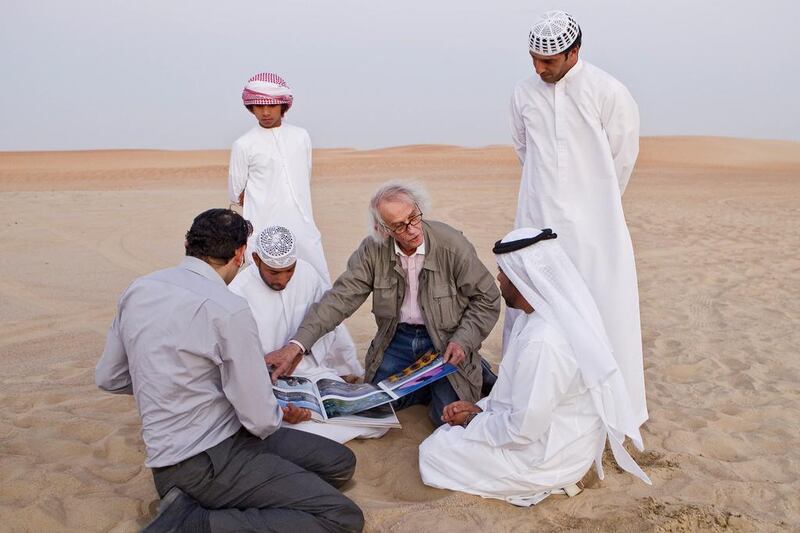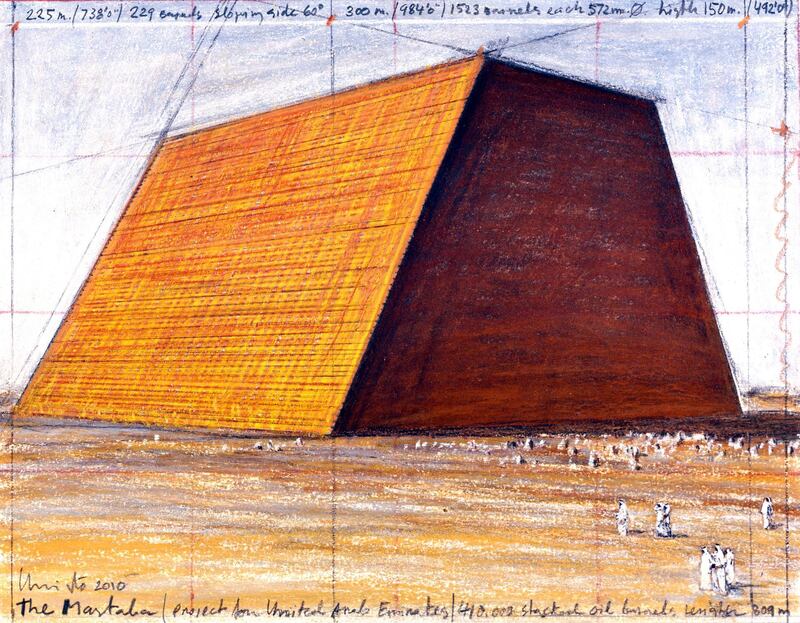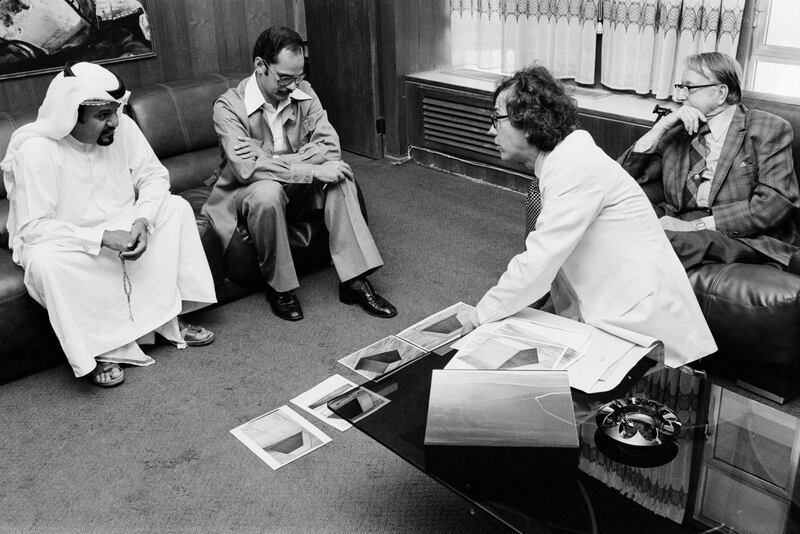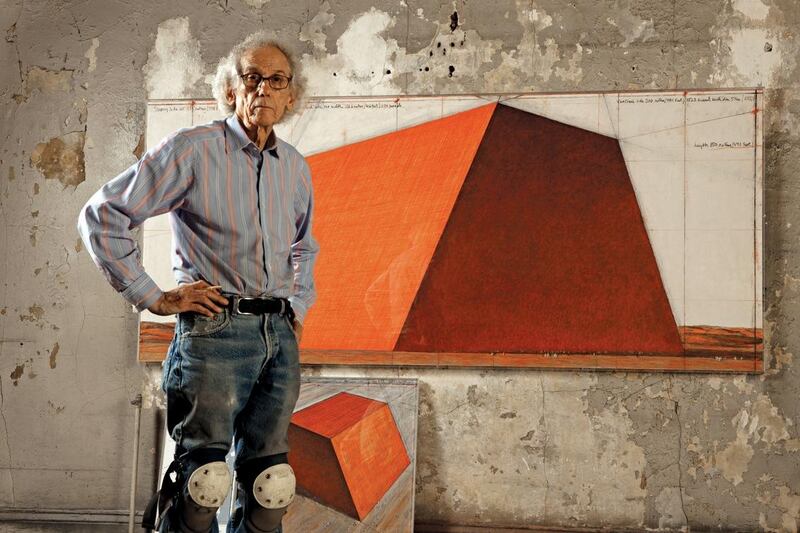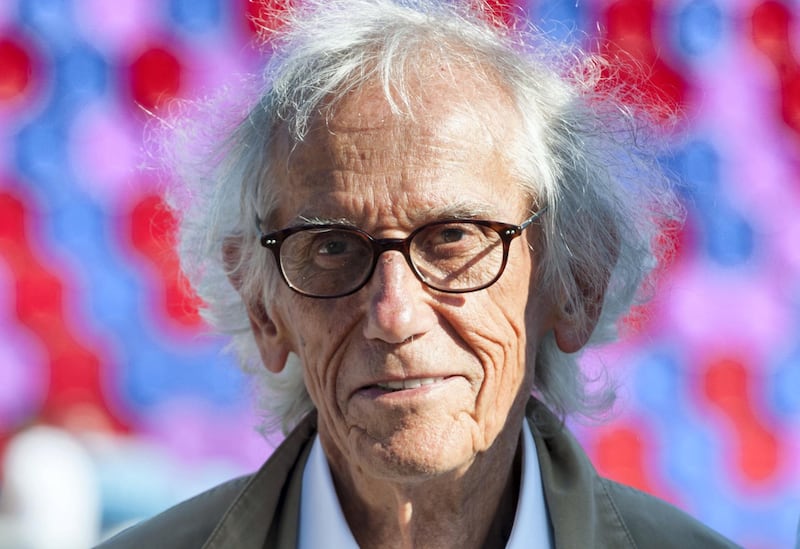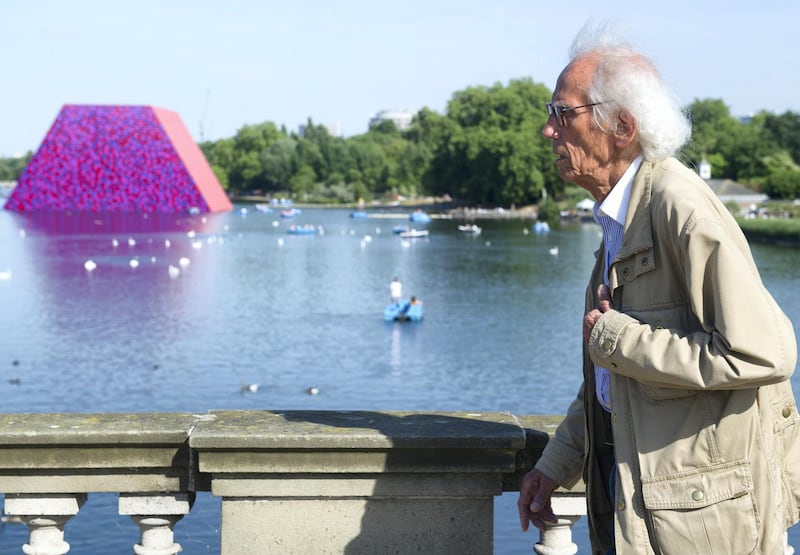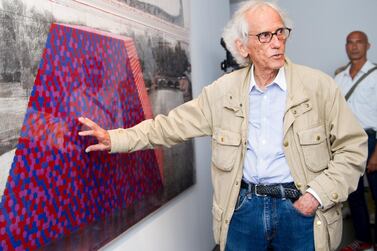“His genius was clear to all those who met him,” says Zaki Nusseibeh of Christo.
"He was full of ideas, full of energy," the UAE's Minister of State tells The National.
The pioneering Bulgarian-born artist had dreams of building the world's largest sculpture in the UAE. He died, aged 84 on Sunday, May 31 at his home in New York City.
Christo was as enthusiastic about the mastaba project in his later years as he was when he first came to the UAE with his wife and collaborator, Jeanne-Claude, in 1979.
The project was envisioned as a 150-metre-high and 330-metre-wide pyramid structure, crafted out of 410,000 oil barrels painted in different shades of okra yellow. With an estimated cost of $350 million, the project was planned to be built out in the Liwa desert and become one of the most recognisable landmarks in the country.
“Abu Dhabi was a small community in the 1970s, so we met Christo regularly during his first visit,” Nusseibeh says.
"Christo spoke about the project even then. But it wasn’t embraced or appreciated at the time, mainly because Abu Dhabi was still concerned with building infrastructure and wasn’t yet ready to invest such sums on an art installation.”
Nusseibeh says a number of factors prevented the project from coming to fruition. “It was an ambitious large-scale project. Christo knew how to raise funds for his works and the UAE government was ready to give him a plot of land to construct the mastaba. However, due to a number of reasons, it never came to be.”
Christo discusses unbuilt UAE project at NYU Abu Dhabi
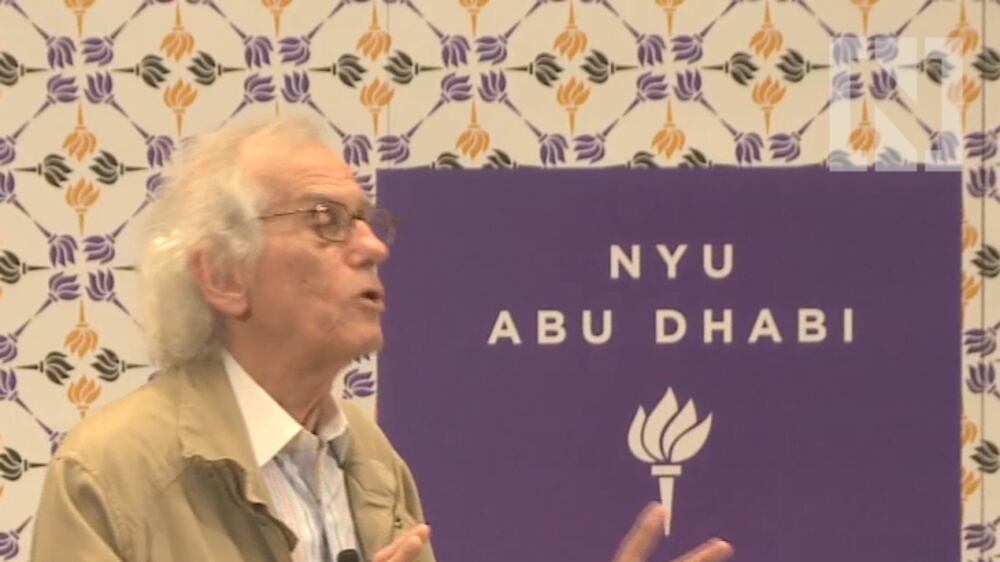
Nusseibeh and Christo stayed in touch over the decades, with Nusseibeh regularly keeping up with the late artist’s works in Germany, France and the United States.
“He started coming back regularly in the last ten years. We met regularly at my home and at my office,” Nusseibeh says, adding that Christo was still eager to see the mastaba project come to fruition.
Christo often spoke of how he wanted to complete the project in honour of his wife Jean Claude, who died in 2009.
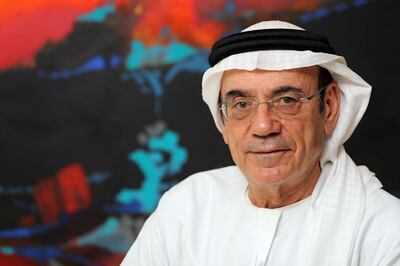
“Christo was serious about the project. He would go out to the western parts of the country, to Dhafrah and Madinat Zayed, researching the area and conducting art workshops there,” Nusseibeh says.
Nusseibeh says Christo produced various iterations of his mastaba concept, including sketches and drawings, as well as a smaller-scale version (made of 7,506 barrels) that was showcased on the Serpentine lake in London’s Hyde Park.
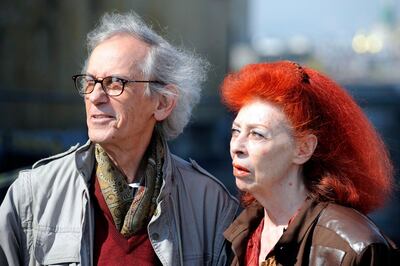
“Pyramids, to him, were a symbol of man’s use of the natural resources to build civilizations. And, as this was where the story of oil was, he was keen to have the monumental version of the mastaba built here in the UAE.
"It was supposed to be a permanent fixture, unlike Christo’s other structures, which were transitory.”
Christo still left a mark on the local cultural scene, even if his monumental structure did not get built to loom over the Liwa desert in his lifetime.
The Christo and Jeanne Claude Award – presented by New York University Abu Dhabi and in partnership with the Abu Dhabi Music & Arts Foundation (ADMAF) – was established in 2012 with the aim of nurturing artistic talent in the UAE.
Nusseibeh, who was previously a member of the judging committee, says that the award is a faithful reflection of Christo’s contribution to the local cultural community.
“He was keen on supporting up-and-coming artists. He regularly held workshops with students from NYU and Zayed University.”
Nusseibeh, who last saw Christo during the artist’s retrospective exhibition in Brussels in 2017, says that the artist will be sorely missed by the UAE’s cultural community.
“We know Christo loved the UAE and we in the Emirates loved him back.”

